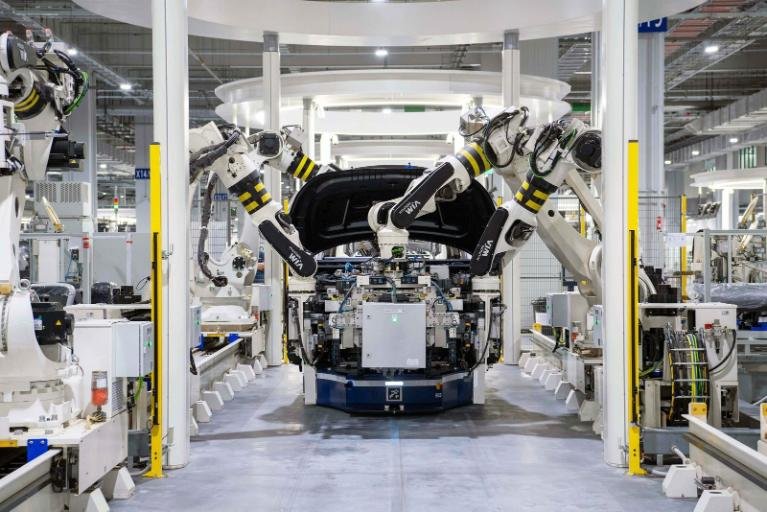Artificial Intelligence (AI) and automation are transforming industries across the world, and Atlanta is no exception. As a thriving business and technology hub, the city is at the forefront of innovation in AI-driven solutions that enhance efficiency and productivity. However, this rapid adoption of automation brings both opportunities and challenges for Atlanta’s workforce.
While some jobs are being replaced by intelligent machines, new roles are emerging that require advanced technical skills. The key question remains: Will AI lead to widespread unemployment, or can it fuel economic growth and job creation? In this article, we’ll explore how AI and automation are reshaping Atlanta’s industries, the risks and rewards of technological advancements, and what steps workers can take to stay relevant in the evolving job market.
How AI and Automation Are Changing Atlanta’s Industries
Atlanta’s diverse economy, which includes manufacturing, healthcare, finance, logistics, and retail, is experiencing significant changes due to AI-driven technology. Let’s look at the industries most impacted.

1. Manufacturing and Logistics: Increased Efficiency, Fewer Manual Jobs
- AI-powered robots and automated systems are revolutionizing warehouse management and production lines in Atlanta.
- UPS, headquartered in Atlanta, leverages AI for route optimization, predictive analytics, and autonomous delivery vehicles.
- Companies like Amazon and Home Depot are investing heavily in AI to streamline inventory management and customer logistics.
- While automation eliminates some traditional warehouse jobs, it also creates high-paying roles in robotics maintenance, AI programming, and data analysis.
2. Healthcare: AI in Diagnostics, Treatment, and Administration
- AI-driven diagnostic tools are improving accuracy and speed in detecting diseases, reducing the need for manual testing.
- Robotic-assisted surgeries, used in major Atlanta hospitals, enhance precision and minimize human error.
- AI is streamlining administrative tasks such as patient scheduling, billing, and medical record-keeping, reducing the workload for healthcare staff.
- However, while some administrative jobs may decline, AI creates demand for data scientists, AI specialists, and cybersecurity experts in the healthcare sector.
3. Finance and Banking: Automation in Risk Analysis and Customer Service
- Atlanta, home to major financial institutions, is seeing a rise in AI-powered fraud detection, credit risk assessment, and chatbot-driven customer support.
- AI-driven trading algorithms are optimizing investment strategies, making the financial sector more efficient.
- While traditional banking jobs are decreasing, the demand for AI developers, data engineers, and cybersecurity specialists is growing rapidly.
4. Retail and E-Commerce: Personalized Shopping and AI-Powered Assistants
- AI-driven recommendation engines personalize shopping experiences, increasing customer engagement.
- Automated checkout systems reduce the need for cashiers, as seen in Amazon’s cashier-less stores.
- AI-powered chatbots and virtual assistants provide 24/7 customer support, reducing human-based service jobs while increasing the need for chatbot developers.
The Future of Jobs: Risks and Opportunities
Jobs at Risk Due to Automation
Certain repetitive and rule-based jobs are most vulnerable to AI disruption. These include:
- Manufacturing and warehouse workers – Replaced by robotic automation.
- Retail cashiers – Self-checkout and AI-powered assistants are reducing demand.
- Customer service representatives – AI chatbots are handling customer inquiries.
- Administrative assistants – AI-driven automation is managing scheduling and data entry.
New Jobs and Career Opportunities Created by AI
While automation is replacing some roles, it is also creating new, high-paying career paths:
- AI Engineers & Data Scientists – Companies need experts to develop and manage AI systems.
- Cybersecurity Analysts – With AI processing sensitive data, security risks increase, requiring skilled professionals.
- Robotics Technicians – Someone needs to maintain and repair the machines!
- AI Ethics Consultants – As AI makes more decisions, ethical concerns are rising, creating a demand for professionals who oversee AI’s social impact.
How Atlanta’s Workforce Can Adapt to AI and Automation
To stay competitive in an AI-driven job market, workers must adapt by gaining new skills. Here’s how:

1. Upskilling and Reskilling
- Enroll in AI and data science courses at Georgia Tech or Emory University.
- Take online certifications in machine learning, Python programming, and cybersecurity.
2. Emphasizing Soft Skills
While AI can handle technical tasks, it lacks creativity, emotional intelligence, and strategic thinking. Skills like:
- Leadership
- Critical thinking
- Communication
- Problem-solving
will remain highly valuable.
3. Exploring New Career Paths
Atlanta’s growing tech scene provides opportunities in fintech, AI development, and digital marketing. Workers should consider transitioning to these industries if their current jobs are at risk.
4. Networking and Job Market Awareness
- Attend AI and tech conferences in Atlanta.
- Connect with professionals in the AI field via LinkedIn and industry events.
AI and automation are reshaping Atlanta’s workforce, bringing both challenges and opportunities. While some traditional roles will disappear, new and better-paying jobs will emerge. The key to success lies in continuous learning, adapting to new technologies, and focusing on human skills that AI cannot replicate.
Are you ready for the AI revolution? Explore our resources and stay ahead of the workforce transformation!












